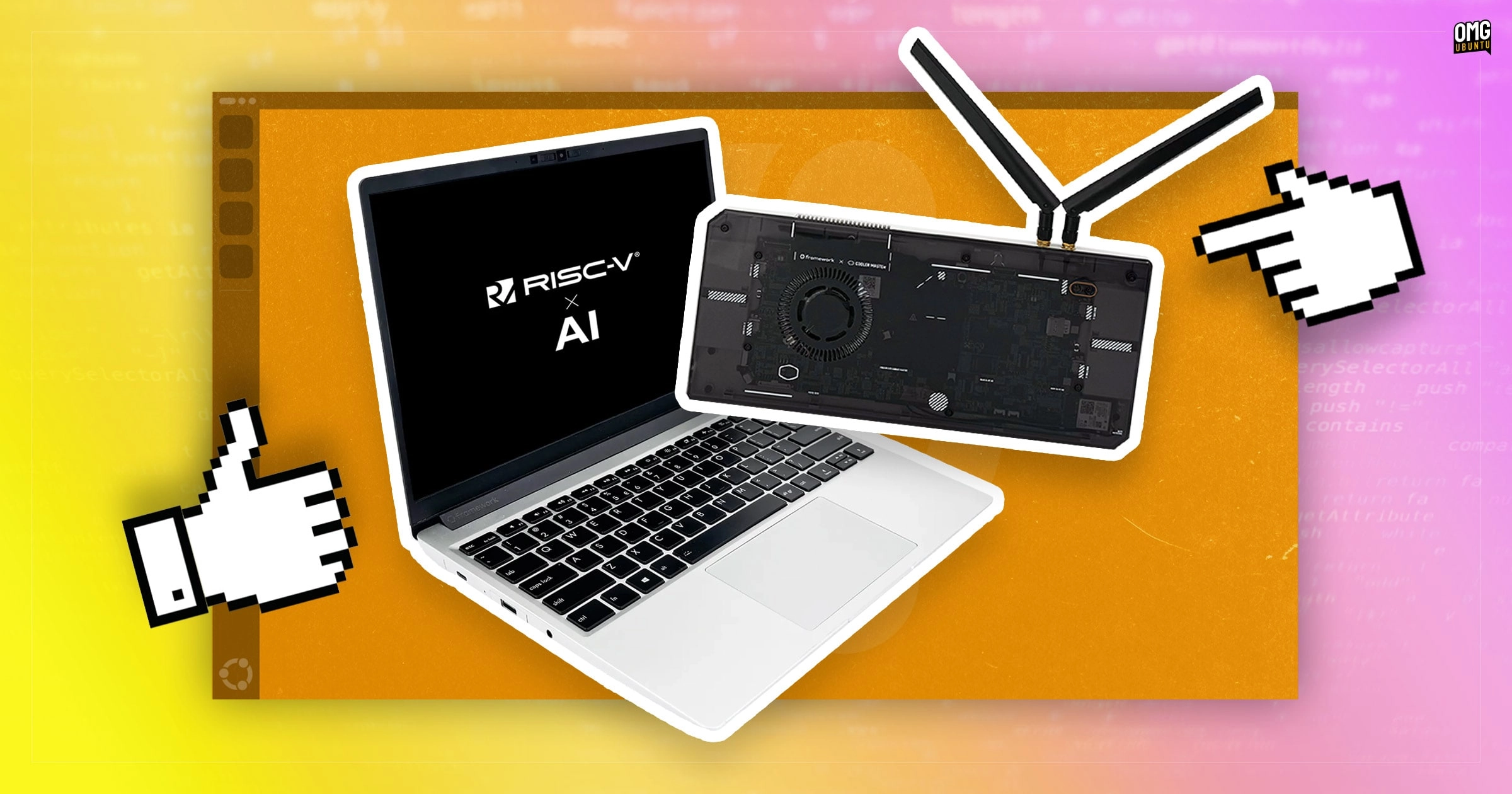Canonical has recently partnered with DeepComputing to introduce the new DC-ROMA RISC-V AI PC, which runs Ubuntu 24.04 LTS. This powerful RISC-V AI PC is built on the advanced RISC-V Mainboard II, designed for Framework’s laptops but can also function as a standalone PC. Users can connect it to a monitor, keyboard, and mouse thanks to its dedicated enclosure.
The mainboard is powered by ESWIN’s RISC-V AI SoC EIC7702X, featuring a 64-bit RISC-V processor with eight SiFive P550 cores, along with an integrated GPU capable of 8K video encoding at 50FPS. It supports an NVMe SSD and can be equipped with up to 64GB of RAM, although this is not user-upgradable. The Framework’s swappable expansion modules allow for flexible connectivity options.
RISC-V is an open-source instruction set architecture, which offers a model similar to how Linux relates to Windows and macOS. Canonical is optimistic about the growth of RISC-V hardware and its applications for developers working on AI solutions, citing its collaboration with several companies within the ecosystem.
DeepComputing’s new AI PC claims to provide over 40 TOPS (Trillions of Operations Per Second) of local AI computation, enabling the execution of complex AI models directly on the device without cloud dependency. Although they promote a maximum of 50 TOPS, the specification sheet indicates the NPU caps at 40 TOPS, which still exceeds the performance of the neural engine found in Apple’s M4 chips.
The pricing for the DC-ROMA RISC-V AI PC starts at $349 for a version with 32GB of RAM, while a fully equipped setup can reach $1,099. Pre-orders are available on DeepComputing’s official store, with shipping slated for Q3 2025. Prospective buyers should be aware of potential tariffs as the product ships from China.
DeepComputing will showcase this AI PC at events such as the RISC-V Summit Europe and Computex Taipei 2025, offering attendees a firsthand experience with this innovative technology.
For more information, visit the official DeepComputing store.
